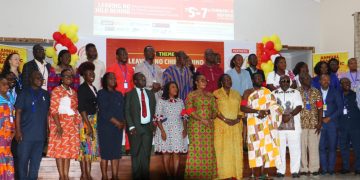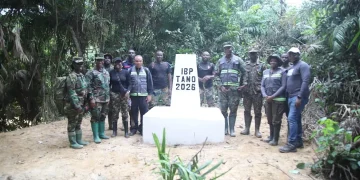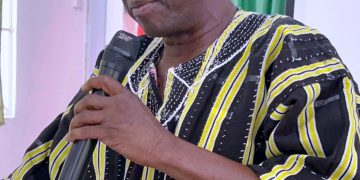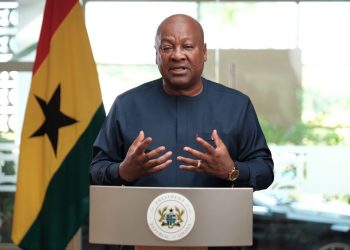Chief Executive Officer of the Ghana Shippers Authority, Professor Ransford Edward Gyampo, has reignited debate over Ghana’s lithium agreement, insisting the country must not settle for what he calls the “old and paltry” 5% royalty rate prescribed under the current legal framework.
In a Facebook post on Wednesday, the Saltpond native — whose community hosts the Ewoyaa lithium deposit being awarded to Atlantic Lithium — said he independently verified claims that the renegotiated lease between Ghana and the mining company no longer guarantees the previously announced 10% royalty.
According to him, “Section 25 of our Minerals and Mining (Amendment) Act, 2010, Act 794, still states that a total of only 5 percent Royalties would have to be paid for our minerals and natural resources. A proposal to increase our Royalties to 10 percent simply meant the existing Act had to be amended. So, per our current legal regime, we are still on the old and paltry 5 percent Royalty for our minerals. But thankfully, the current sector Minister has assured that he is tabling an amendment to Act 794 to increase our Royalties to an appreciable rate.”
Prof. Gyampo urged citizens to actively engage the process rather than dismiss it in advance. “We have the power to engage and to demand a new Royalty rate that would help our developmental efforts and ensure that our natural resources are not taken away for pittance. So, rather than resorting to cynicism, we must engage and seize the opportunity to make informed inputs even as our sector Minister considers an amendment proposal to Act 794.”
He also called for deeper consultation with communities in the Mfantseman area, saying:
“There should be further and more substantive consultations about the Mfantseman Lithium exploitation, its potential impact on the community, the mitigating interventions to deal with negative impact and the proper Royalties that must be paid to the Sovereign People of Ghana and Mfantseman.”
Prof. Gyampo added that his long-standing criticism of earlier versions of the lithium deal was guided solely by national interest. “When we were speaking against the previous government on this deal, we did so purely out of our conviction that our country deserves better… no amount of propaganda would push us to speak against a government that is serving the people well.”
Lease Before Parliament as Committee Slows Process
His renewed advocacy comes as Parliament begins scrutiny of the renegotiated lithium mining lease, which was finally laid before the Committee on Lands and Natural Resources after months of delay.
Committee chair Collins Dauda has signalled that MPs will not fast-track approval without full national engagement.
“Revenues generated from a 5% royalty and 10% royalty can never be the same. The preference is to have 10% or more. But the law has to be amended. What it means is that this law which is the current on royalties, the Minerals and Mining Amendment Act 2010 (Act 794), has to be amended to up the rate from 5% to whatever percentage the minister so wishes.”
The renegotiated lease replaces the originally agreed 10% royalty with a clause requiring the company to pay royalty “as prescribed by law.” Parliamentary leaders say the current prescribable rate is 5%, drawing from Act 794, though the 2015 amendment to Ghana’s mining law (Act 900) repealed the fixed rate and introduced a system under which ministers may propose new rates through regulation — subject to parliamentary approval.
The committee says it will take its time to evaluate the fiscal revisions, stakeholder expectations, and legal implications before submitting its report to the plenary for debate and ratification.
Source: www.kumasimail.com





































































